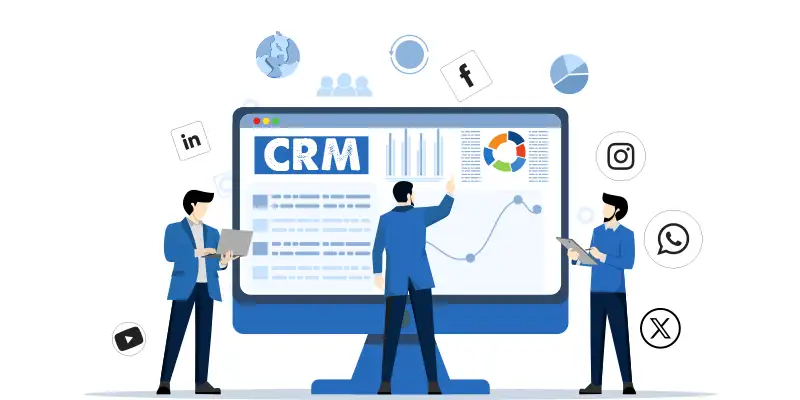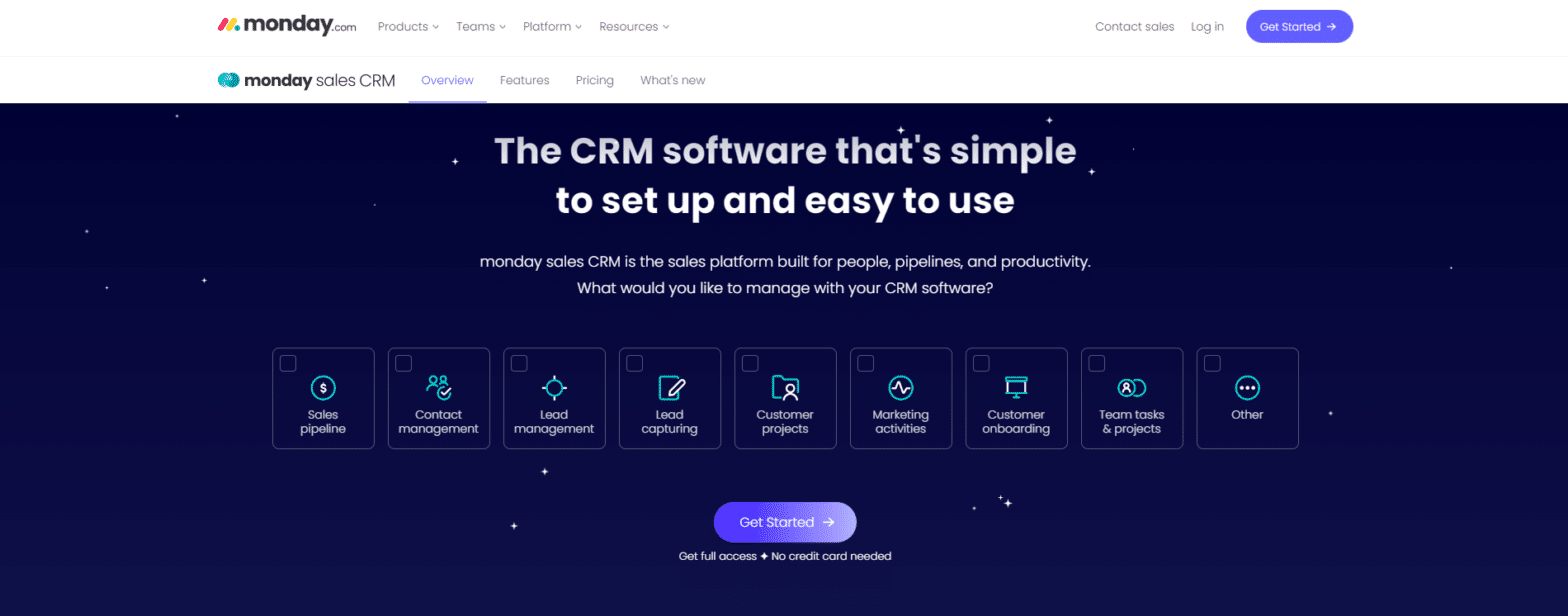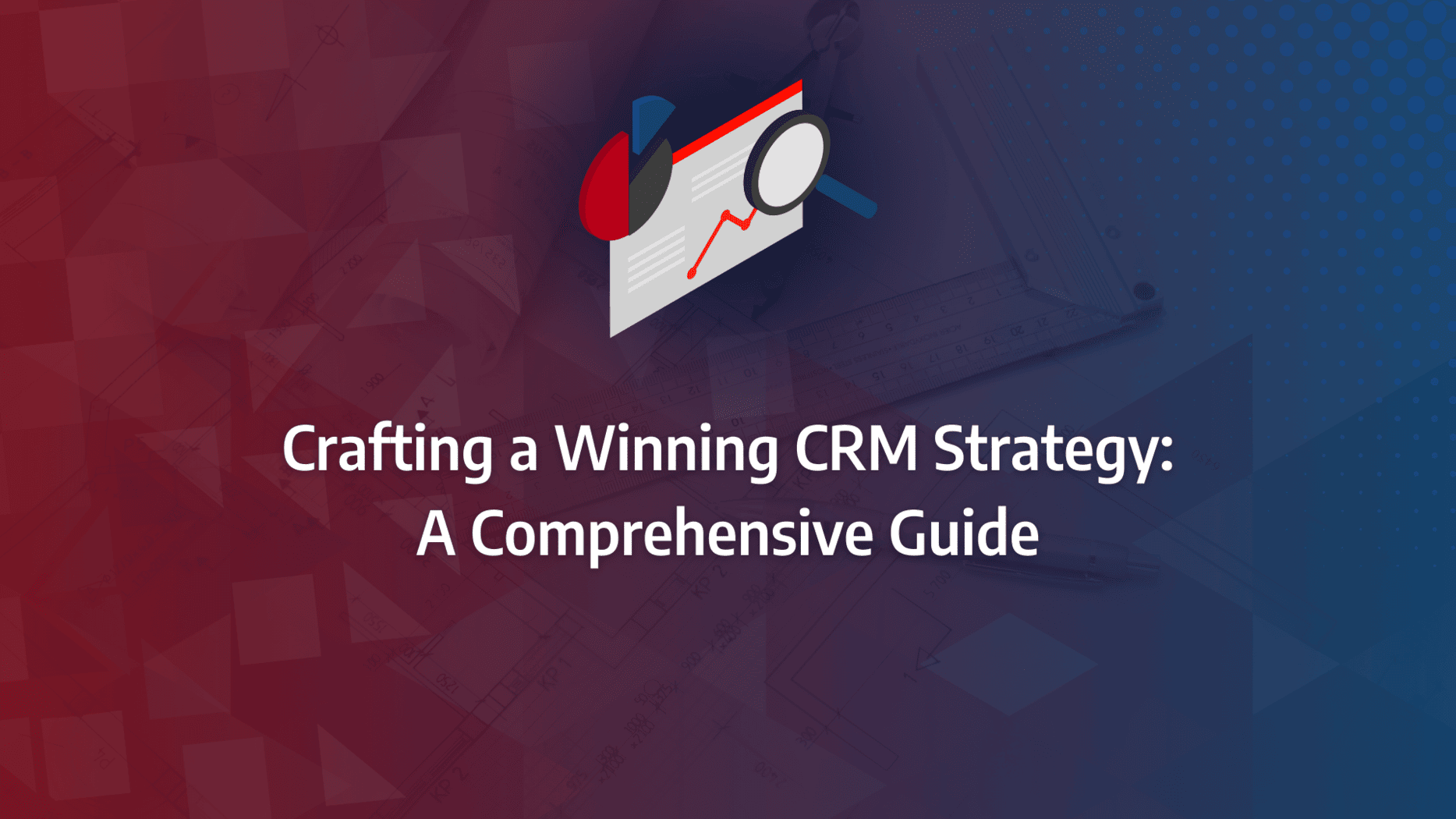Supercharge Your Marketing: Seamless CRM and Social Media Integration

Unlocking the Power of Integration: CRM, Social Media, and the Future of Marketing
In today’s fast-paced digital landscape, businesses are constantly seeking innovative ways to connect with their audience, nurture leads, and drive conversions. The convergence of Customer Relationship Management (CRM) systems and social media platforms has emerged as a game-changer, offering unprecedented opportunities to streamline marketing efforts, personalize customer experiences, and boost overall business performance. This article delves deep into the world of CRM and social media integration, exploring the benefits, strategies, and best practices to help you unlock the full potential of this powerful combination. We’ll navigate the complexities, debunk the myths, and equip you with the knowledge to transform your marketing approach.
The Core Components: CRM and Social Media Explained
Understanding CRM: The Heart of Customer Relationships
At its core, a CRM system is a centralized hub for managing all interactions with current and prospective customers. It’s a database that stores valuable information, including contact details, purchase history, communication logs, and preferences. CRM systems empower businesses to:
- Organize Customer Data: Centralizing all customer information, eliminating data silos, and providing a 360-degree view of each customer.
- Improve Customer Service: Enabling support teams to access customer history quickly, resolve issues efficiently, and provide personalized assistance.
- Enhance Sales Performance: Streamlining the sales process, tracking leads, and identifying opportunities for upselling and cross-selling.
- Automate Marketing Campaigns: Segmenting customers, personalizing marketing messages, and automating email campaigns.
- Analyze Customer Behavior: Gaining insights into customer preferences, purchase patterns, and engagement levels to make data-driven decisions.
Popular CRM platforms include Salesforce, HubSpot, Zoho CRM, and Microsoft Dynamics 365, each offering a range of features and functionalities to cater to different business needs and sizes.
Social Media: The Modern Marketing Battlefield
Social media has revolutionized how businesses connect with their audience. Platforms like Facebook, Instagram, Twitter, LinkedIn, and TikTok have become essential tools for building brand awareness, engaging with customers, and driving traffic to websites. Social media marketing involves:
- Content Creation: Developing and sharing engaging content, including text, images, videos, and stories, to capture the attention of the target audience.
- Community Building: Fostering a sense of community among followers, responding to comments and messages, and encouraging interaction.
- Paid Advertising: Running targeted advertising campaigns to reach specific demographics, interests, and behaviors.
- Social Listening: Monitoring social media channels for mentions of the brand, industry trends, and competitor activities.
- Performance Analysis: Tracking key metrics, such as engagement, reach, and conversions, to measure the effectiveness of social media efforts.
Each social media platform offers unique features and targeting options, making it crucial to select the right platforms for your business based on your target audience and marketing objectives.
The Power of Integration: Why CRM and Social Media Should Work Together
Integrating CRM and social media allows businesses to bridge the gap between customer data and social engagement, creating a more holistic and effective marketing strategy. Here’s why this integration is so crucial:
Enhanced Customer Understanding
By connecting social media profiles to CRM records, businesses gain a deeper understanding of their customers. They can analyze social media activity, such as likes, shares, comments, and direct messages, to gather insights into customer interests, preferences, and pain points. This data enables businesses to personalize their marketing messages, tailor their product offerings, and provide more relevant customer service.
Improved Lead Generation and Qualification
Social media platforms are rich sources of potential leads. Integrated CRM systems can track social media interactions, identify potential customers, and automatically add them to the CRM database. This streamlines the lead generation process, allowing sales teams to focus on nurturing qualified leads and converting them into customers. Social media tools can also be used to score leads based on their engagement, helping prioritize those with the highest potential for conversion.
Streamlined Customer Service
Social media has become a preferred channel for customer service. Integrating social media with CRM allows support teams to monitor social media channels for customer inquiries, complaints, and feedback. They can respond to these interactions directly from the CRM system, providing faster and more efficient customer service. This integration also enables support teams to track customer service interactions, identify recurring issues, and improve overall customer satisfaction.
Personalized Marketing Campaigns
With integrated CRM and social media, businesses can segment their customer base based on social media behavior, such as interests, engagement levels, and demographics. This allows them to create highly targeted marketing campaigns that resonate with specific customer segments. Personalized messages are more likely to capture attention, drive engagement, and ultimately lead to conversions. For example, you can create a campaign that targets people who have liked a specific product or service on your Facebook page.
Increased Sales Efficiency
By integrating social media with CRM, sales teams can gain valuable insights into customer behavior, track social media interactions, and identify sales opportunities. They can use this information to personalize their sales pitches, tailor their product recommendations, and close deals more effectively. Integrated systems can also automate sales tasks, such as lead assignment and follow-up, freeing up sales reps to focus on building relationships and closing deals.
Implementing CRM and Social Media Integration: A Step-by-Step Guide
Successfully integrating CRM and social media requires a well-defined strategy, careful planning, and the right tools. Here’s a step-by-step guide to help you get started:
1. Define Your Goals and Objectives
Before you start integrating, clearly define your goals and objectives. What do you want to achieve with this integration? Are you trying to increase lead generation, improve customer service, or boost sales? Having clear goals will help you choose the right tools, develop a relevant strategy, and measure your success.
2. Choose the Right Tools
Select CRM and social media integration tools that align with your business needs. Many CRM platforms offer built-in integrations with popular social media platforms. If your CRM doesn’t have native integration, you can use third-party integration tools, such as Zapier, or other integration platforms. Consider factors like ease of use, features, pricing, and the platforms you need to connect.
3. Connect Your Accounts
Once you’ve chosen your tools, connect your CRM and social media accounts. This usually involves authenticating your accounts and granting the necessary permissions. Follow the instructions provided by your CRM and integration tools to establish the connection.
4. Map Your Data
Determine which data you want to share between your CRM and social media platforms. This might include contact information, social media profiles, engagement metrics, and customer interactions. Map the fields in your CRM to the corresponding fields in your social media accounts to ensure data is transferred correctly.
5. Set Up Workflows and Automation
Automate tasks and workflows to streamline your marketing efforts. For example, you can set up a workflow to automatically add new leads from social media to your CRM, or to trigger a specific marketing campaign based on customer behavior. Automation can save you time, reduce errors, and improve efficiency.
6. Train Your Team
Train your sales, marketing, and customer service teams on how to use the integrated system. Provide them with the necessary knowledge and skills to leverage the features and functionalities of the integrated tools. This includes training on how to access customer data, respond to social media inquiries, and track performance metrics.
7. Monitor and Analyze Results
Continuously monitor and analyze the results of your CRM and social media integration. Track key metrics, such as lead generation, engagement, conversions, and customer satisfaction. Use these insights to optimize your strategy, refine your campaigns, and improve your overall performance. Regular analysis will help you identify what is working and what needs improvement.
Key Features to Look For in CRM and Social Media Integration
When selecting CRM and social media integration tools, look for the following key features:
- Social Listening: The ability to monitor social media channels for mentions of your brand, industry trends, and competitor activities.
- Social Media Management: Features for scheduling posts, managing content calendars, and tracking social media performance.
- Lead Generation: Tools for capturing leads from social media, such as lead forms and social media buttons.
- Social Customer Service: The ability to monitor social media for customer inquiries, complaints, and feedback, and respond to them directly from the CRM system.
- Social Profiling: The ability to automatically add social media profiles to customer records in the CRM system.
- Reporting and Analytics: Dashboards and reports that track key metrics, such as engagement, reach, and conversions.
- Automation: Features for automating tasks, such as lead assignment, follow-up, and email campaigns.
Best Practices for CRM and Social Media Integration
To maximize the benefits of CRM and social media integration, follow these best practices:
- Know Your Audience: Understand your target audience’s preferences, behaviors, and social media habits.
- Choose the Right Platforms: Focus on the social media platforms where your target audience is most active.
- Create Engaging Content: Develop high-quality content that resonates with your audience and encourages interaction.
- Personalize Your Messages: Tailor your marketing messages to specific customer segments.
- Respond Promptly: Respond to customer inquiries and feedback on social media quickly.
- Use Analytics: Track key metrics to measure the effectiveness of your integration efforts.
- Stay Updated: Keep up-to-date with the latest social media trends and CRM features.
- Ensure Data Privacy: Comply with all relevant data privacy regulations, such as GDPR and CCPA.
Real-World Examples of Successful CRM and Social Media Integration
Many businesses have successfully leveraged CRM and social media integration to achieve remarkable results. Here are a few examples:
- E-commerce Retailer: An e-commerce retailer integrated their CRM with Facebook and Instagram. They used social listening to identify customers interested in a particular product category. They then sent targeted ads to these users, resulting in a significant increase in website traffic and sales.
- Software Company: A software company integrated their CRM with LinkedIn. They used LinkedIn Sales Navigator to identify potential leads and automatically add them to their CRM. They then used the CRM to nurture these leads with personalized email campaigns, leading to a higher conversion rate.
- Hospitality Business: A hotel chain integrated their CRM with Twitter. They monitored Twitter for mentions of their brand and responded to customer inquiries and complaints in real-time. This improved customer satisfaction and enhanced their brand reputation.
Challenges and Considerations
While CRM and social media integration offers immense benefits, there are also some challenges and considerations to keep in mind:
- Data Security and Privacy: Ensuring the security and privacy of customer data is paramount. Comply with all relevant data privacy regulations and implement robust security measures to protect sensitive information.
- Data Silos: Overcoming data silos and ensuring seamless data flow between CRM and social media platforms can be a challenge. Choose integration tools that facilitate data synchronization and eliminate silos.
- Integration Complexity: Integrating different systems can be complex and time-consuming. Carefully plan the integration process and seek expert assistance if needed.
- Training and Adoption: Training your team on how to use the integrated system is essential for successful adoption. Provide comprehensive training and ongoing support to ensure that your team can leverage the features and functionalities of the integrated tools.
- Budget: Consider the costs associated with CRM and social media integration, including software licenses, integration tools, and training. Develop a realistic budget and allocate resources accordingly.
The Future of CRM and Social Media Integration
The future of CRM and social media integration is bright. As technology continues to evolve, we can expect to see even more sophisticated integrations, including:
- AI-Powered Insights: Artificial intelligence (AI) will play a significant role in analyzing customer data, identifying trends, and providing personalized recommendations.
- Enhanced Automation: Automation will become even more sophisticated, streamlining marketing tasks and improving efficiency.
- Voice-Based Interactions: Voice assistants, such as Alexa and Google Assistant, will be integrated with CRM and social media platforms, enabling voice-based interactions with customers.
- Augmented Reality (AR) and Virtual Reality (VR): AR and VR technologies will be used to create immersive customer experiences and enhance social media engagement.
Conclusion: Embracing the Synergy
CRM and social media integration is no longer a luxury; it’s a necessity for businesses that want to thrive in today’s competitive market. By combining the power of customer relationship management with the reach and engagement of social media, businesses can create a more holistic and effective marketing strategy. This leads to enhanced customer understanding, improved lead generation, streamlined customer service, personalized marketing campaigns, and increased sales efficiency.
By following the strategies and best practices outlined in this article, you can successfully integrate your CRM and social media platforms, unlock the full potential of this powerful combination, and transform your marketing approach. Embrace the synergy, stay ahead of the curve, and watch your business flourish.



